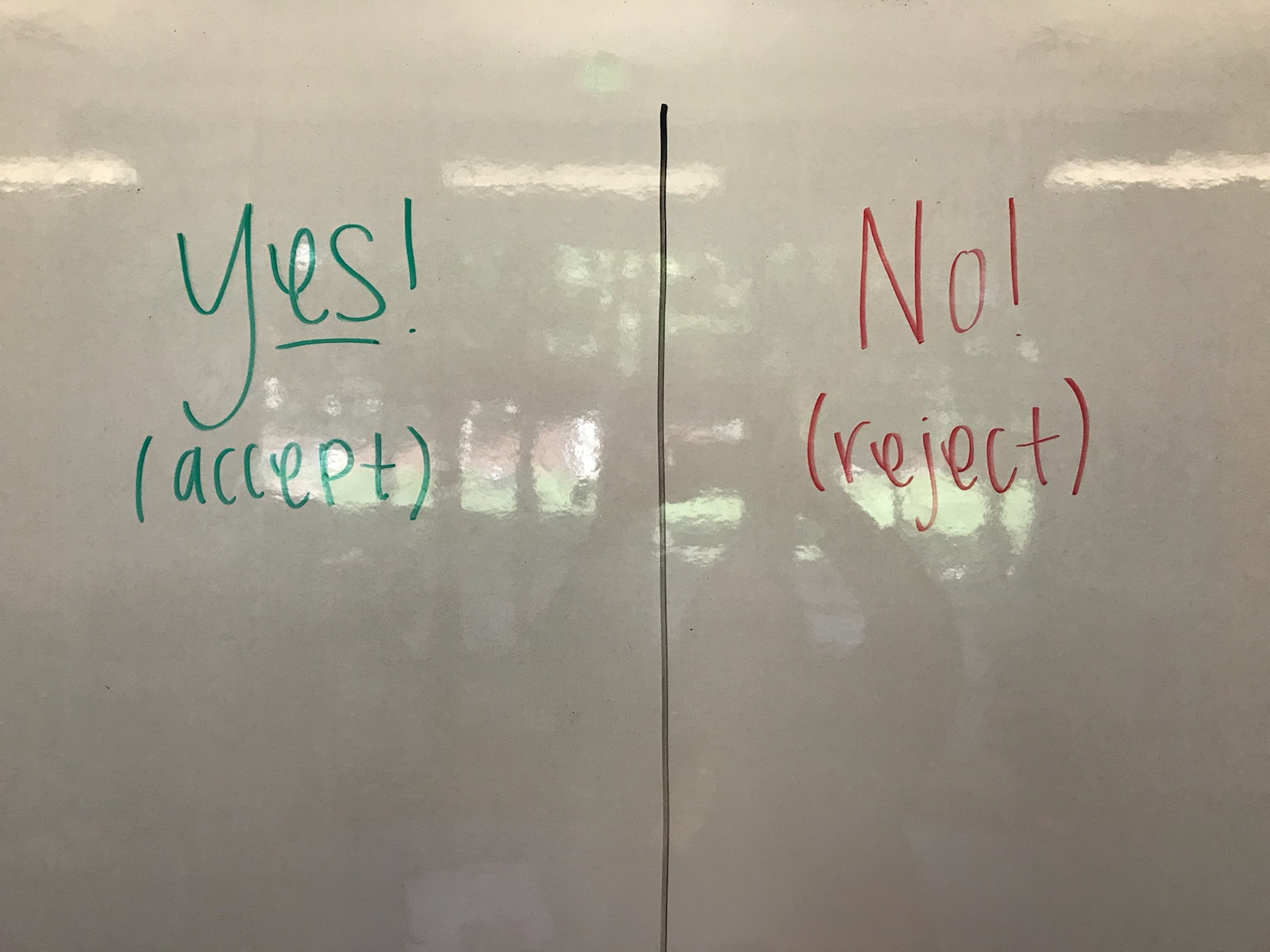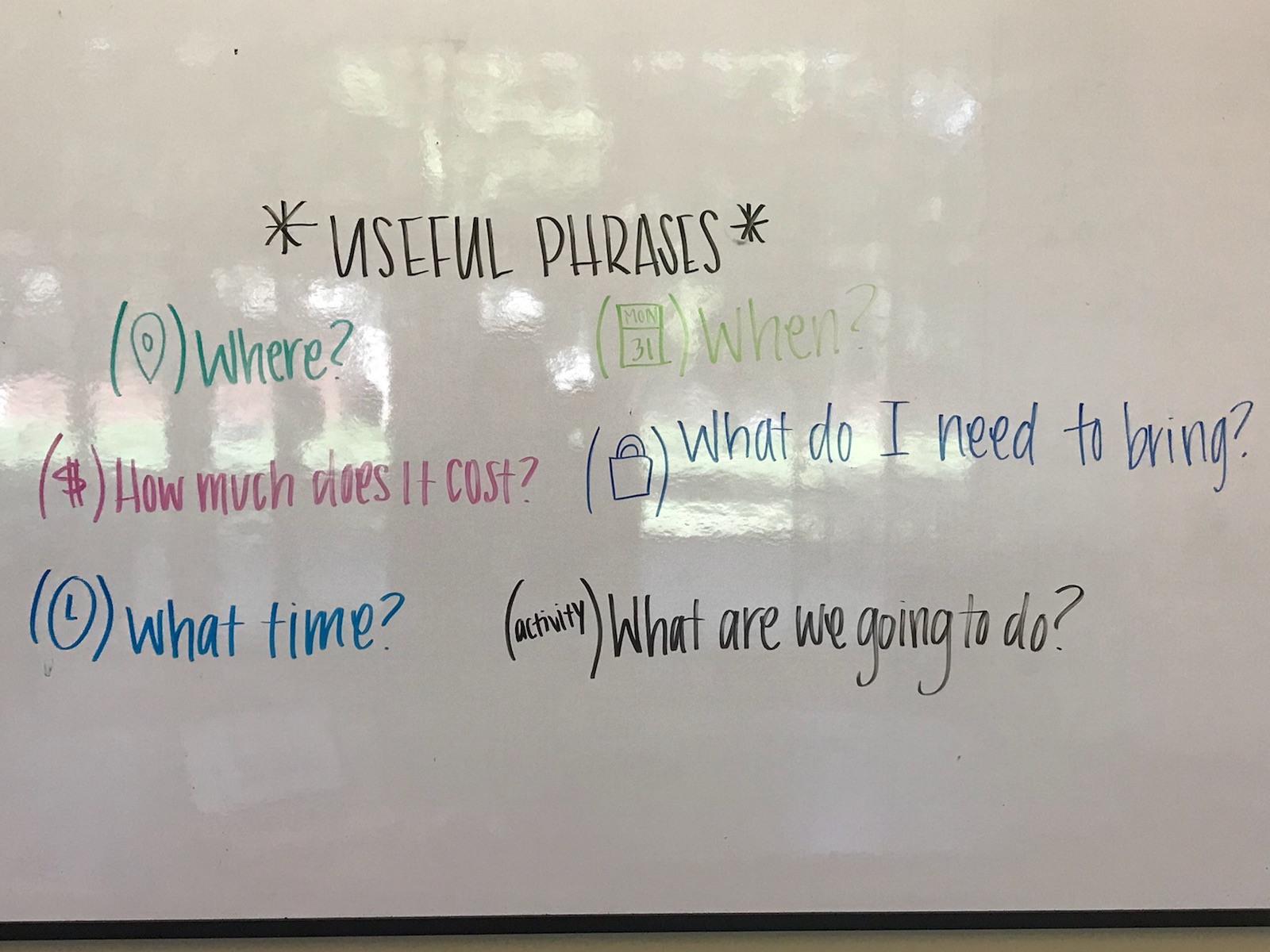You're Invited!, Novice High, English Foundation
You're Invited! Activity
Topics: Invitations
Description: In this activity, students will practice rejecting or accepting formal invitations to an afternoon or evening get-together. Also, as a group they will have to select one of the invitations templates. Students will have to exchange ideas and organize them in order to successfully complete this activity.
Relevant Can-Do Statements:
- I can accept or reject an invitation
- I can invite and make plans with someone
- I can exchange information about when to meet and where to go, such as the store, the movie theatre, a concert, a restaurant, the lab
Materials Needed:
Activity Overview Powerpoint: This helps you move smoothly throughout the activity
Lab Assistant Invitation Cards (Use canva to make a specialized invitation for this activity) (Print & Laminate)
Invitation Templates(Print & Laminate)
Small-Tipped Expo Markers
Can-Do Statement Card (Print & Laminate)
Lab Assistant Notes:
- Here are some reminder phrases in case students don’t mention them (translate in your language for the students to use):
- Accept
- I agree
- I would love to
- I'll pick you up
- yes, of course
- I guess
- of course
- Reject
- I'm really busy
- Thank you, but I can't go
- I'm sorry, I have to..
- I prefer to not go
- I want to but I can't
Warm-up
- Tell the students:
"I am going to invite you to a party but you don't want to go to, how are you going to respond?"
2. Write the word “NO” on the board. The students should make a cloud of ideas and write them on the board. After, do the same with the word “YES”
Write the word NO and the word YES on the board (in your language). The students should brainstorm words or phrases to either accept or decline an invitation. The board should look like the photo below:

This is an example of a Yes and No example on the board
- Choose 1-2 sample invitations that were created ahead of time (see sample invitation in the mateirals) and distribute them to the students.
- Using the invitation, invite the students. (You will not have enough time to share all the invitations)
"Now I am going to invite you to a party or a fun activity. After listening to my invitation, each person will either accept or decline my invitation. " - After you invite them, ask the students:
Do you want to go? The majority of students should accept or reject the invitation.
Main Activity
- Working individually (5 minutes) :
Each student is going to choose an invitation that they like and plan to propose the activity to their friends. Tell the students the following:
"You will have five minutes to create an invitation for a fun activity. You are going to use the invitations on the table, but you will need to put the information. "
***During the five minutes you should walk around and give help to the group*** - After five minutes, the students are going to walk around the room and take turns inviting another person. The person they are inviting should accept or reject the invitation. The students should ask questions like, who, what, where, when, how much, what should I bring. They can explain why or why not they want to go.

This is an example of some phrases students can ask about invitations
- "Which activities do you accept? Which activities do you reject?"
- "Do you like to go to cultural events or plays?"
- "Do you like to go to sports games?"
Wrap-up
End of lab: Can-Do statement check-in... “Where are we?”
- Read can-do statements and have students evaluate their confidence with cards
- Encourage students to be honest in their self evaluation
- Pay attention, and try to use feedback for future labs!